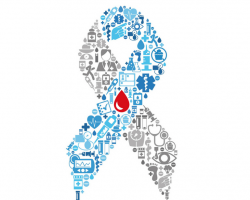Diabetes is the reason why it is necessary to keep to diet, constantly monitor blood sugar level, take medications on time and worry about such disease consequences as coma, blindness or legs amputation. But you can lead active lifestyle even with diabetes. The main thing is not to miss the early symptoms of the disease.

Common Signs of Diabetes
Symptoms of diabetes may differ depending on its type. Most common signs of this condition include:
- constant thirst – during a day you drink more than three liters of water;
- frequent visits to the bathroom, especially at night;
- growing appetite with weight loss (on early stages);
- itchy skin;
- slow healing process;
- constant fatigue, memory deterioration;
- numb fingertips.
In type I diabetes, patient’s breath smells like acetone, skin peels off. Such diabetes may occur suddenly and be accompanied by headaches and vomiting and can even cause coma, especially if early signs were unnoticed.
Type II diabetes often remains unnoticed until it leads to other difficulties: problems with potency, vision loss, kidney diseases, heart attack.
Who Can Get Diabetes?
You can not tell that a person has type I diabetes until carbohydrate metabolism in the body is disturbed and the first symptoms appear:
- fatigue;
- weakness;
- sweating;
- changes in tests indicators.
Type II diabetes usually causes overweight and low physical performance, so you can partially prevent it by keeping to a diet and doing physical exercises.
There are factors that increase the risk of diabetes:
- Hereditary predisposition. If a patient’s relative suffers from this disease, the chances of diabetes are higher;
- Pancreas disorders. Insulin is produced by the pancreatic gland and if there are disorders in this body, there may arise some with the hormone;
- Endocrine system diseases. Diabetes is a hormonal disturbance. If there is a predisposition to such diseases, the risk of diabetes remains;
- Viral infections. Chickenpox, rubella, mumps, and even flu can trigger diabetes.
How to Prevent Diabetes Symptoms?
If you notice suspicious symptoms of diabetes, you should visit an endocrinologist and undertake required tests: blood sugar test, urine glucose test, glucose tolerance test, insulin, C-peptide and glycated hemoglobin in blood levels (the latter three tests are taken from the vein). These surveys are enough to detect signs of diabetes and determine its type.
If you see no obvious signs of diabetes but you are at a risk group, do blood tests for sugar every year. Healthy people need to undertake examinations every three years.
What can you do to minimize the risk of diabetes?
- maintain a healthy weight;
- engage in physical activity at least half an hour a day;
- eat less sugar and saturated fats;
- not smoke.
We hope this article was useful and informative for you. Read more medical articles about diabetes in our «News» category.
Posted by Dr. Himanshu Singh

 English
English Deutsch
Deutsch Français
Français Italiano
Italiano Español
Español Svenska
Svenska Português
Português 日本人
日本人 Dansk
Dansk Norsk
Norsk Suomi
Suomi Czech
Czech
